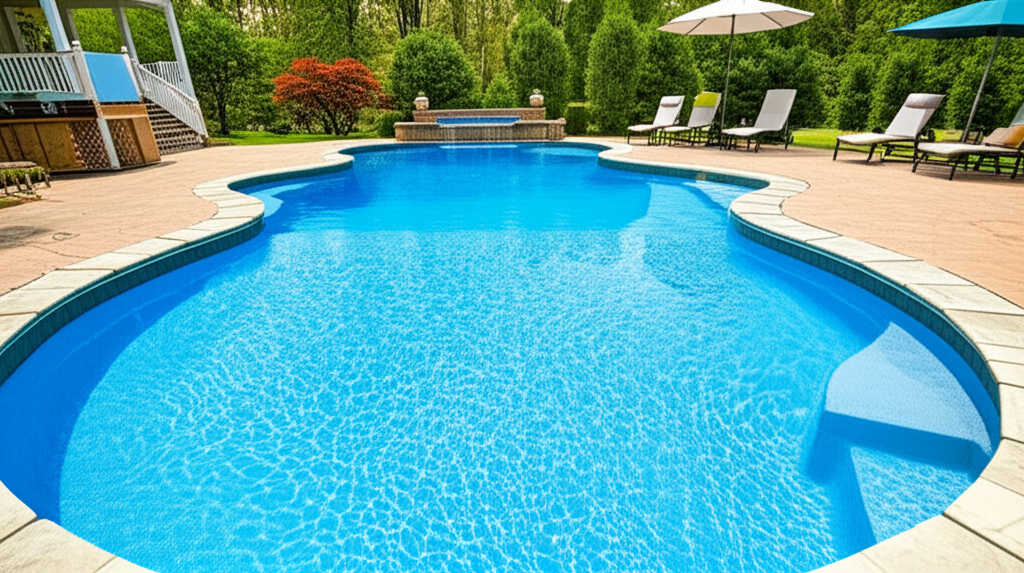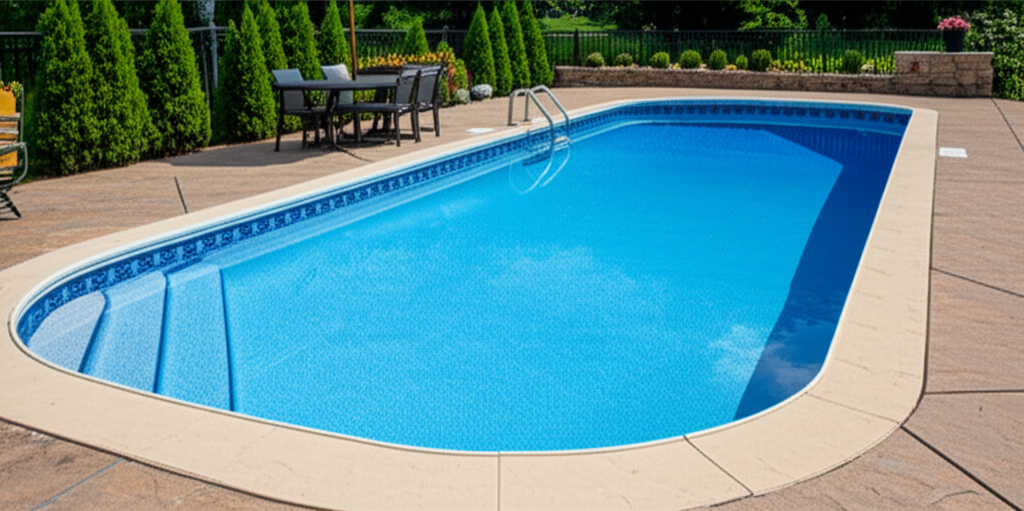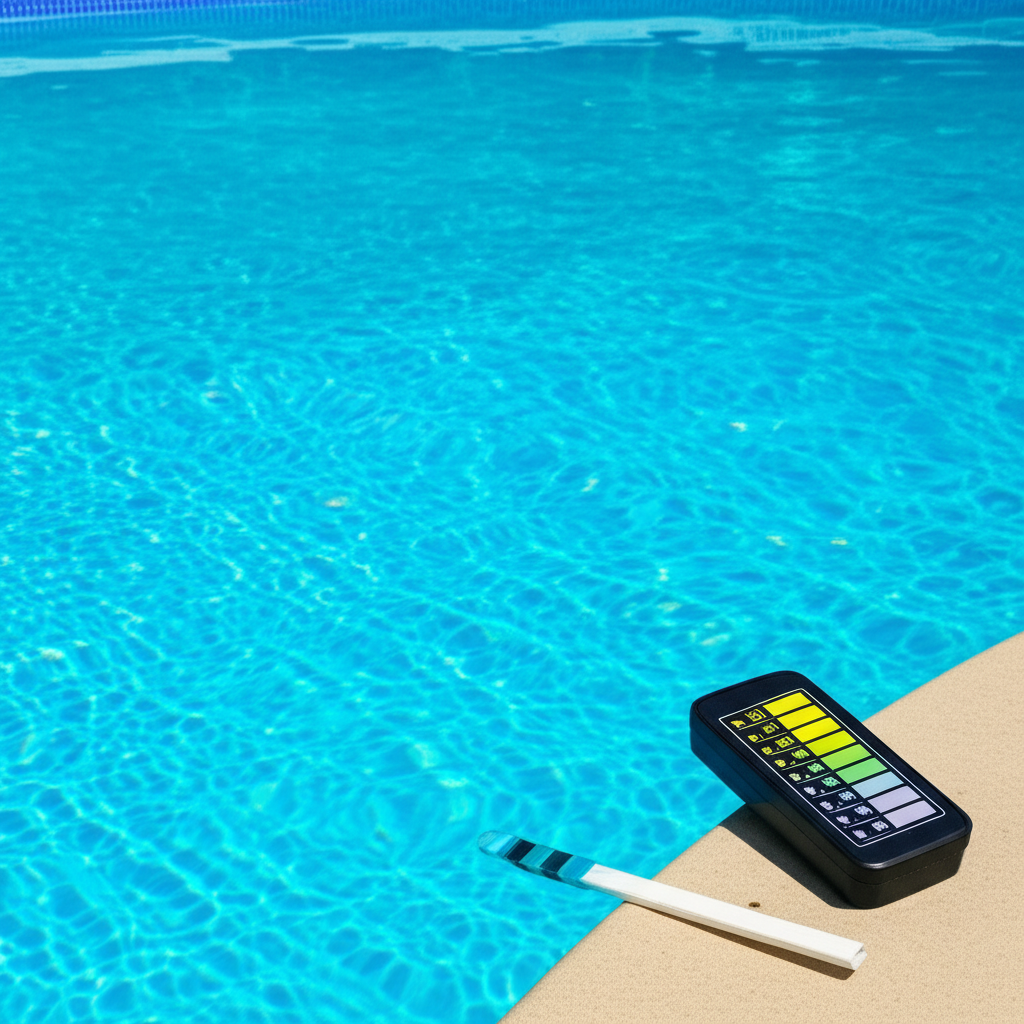- What is a Vinyl Liner Pool?
- The Best Pros of a Vinyl Liner Pool
- Surprising Cons of a Vinyl Liner Pool
- Understanding Pool Liner Types
- Is a Vinyl Liner Pool Right for You?
Vinyl Liner Pool construction offers an appealing and cost-effective solution for many homeowners dreaming of a backyard oasis. Known for their smooth surfaces, extensive design options, and relatively swift installation, these pools have carved out a significant niche in the swimming pool market. However, like any major home investment, understanding both their best advantages and unexpected drawbacks is crucial for making an informed decision. Let’s dive into what makes vinyl liner pools popular and where they might present challenges.
What is a Vinyl Liner Pool?
At its core, a vinyl liner pool consists of a frame typically made of galvanized steel or polymer walls, often backed by concrete, over which a custom-fabricated sheet of vinyl is placed. This vinyl sheet acts as the waterproof membrane, holding the pool water. Unlike concrete pools that are plastered or fiberglass pools that are molded shells, the liner is the defining characteristic, providing both the aesthetic finish and the watertight seal. This construction method allows for a high degree of customization in terms of shape and size, making them adaptable to various backyard layouts.
The Best Pros of a Vinyl Liner Pool
Vinyl liner pools are celebrated for several compelling reasons that make them a top choice for many families.
1. Cost-Effectiveness:
Perhaps the most significant advantage of a vinyl liner pool is its initial lower cost compared to fiberglass or concrete alternatives. This makes them an attractive option for budget-conscious homeowners who don’t want to compromise on the dream of owning a pool. Installation costs are typically lower, and the materials themselves are more affordable.
2. Design Versatility:
Vinyl liners offer incredible flexibility in design. They can be custom-fabricated to almost any shape and size imaginable, from kidneys and L-shapes to geometric rectangles and freeforms. Beyond shape, the aesthetic appeal of a vinyl liner pool is greatly enhanced by the vast array of patterns and colors available. From vibrant blues to sophisticated grays, and intricate tile-like designs, homeowners can truly personalize their pool’s look to match their landscaping and personal style.
3. Smooth, Comfortable Surface:
The non-abrasive nature of a vinyl liner means a softer, smoother surface underfoot. This is a huge benefit for swimmers, especially children, as it eliminates the rough texture of some concrete finishes that can scratch skin or snag swimsuits. It’s a key factor in providing a comfortable and enjoyable swimming experience.
4. Less Algae Prone:
Thanks to their non-porous surface, vinyl liners are inherently less hospitable to algae growth than porous concrete or plaster finishes. This means less scrubbing and less frequent chemical treatments to keep your pool water pristine, potentially saving you time and money on maintenance.
5. Quick Installation:
Compared to the extensive curing and finishing process of a concrete pool, vinyl liner pools can be installed relatively quickly. Once the excavation and wall installation are complete, the liner can be put in place, filled, and ready for swimming in a shorter timeframe, allowing you to enjoy your pool sooner.
Surprising Cons of a Vinyl Liner Pool
While the benefits are considerable, vinyl liner pools also come with a set of surprising drawbacks that potential owners should consider.
1. Durability Concerns & Future Replacement Costs:
One of the most significant long-term considerations is the lifespan of the liner. While durable, vinyl liners are not permanent. They typically last between 8 to 12 years before requiring replacement, depending on quality, maintenance, and sun exposure. The cost of a new liner, plus installation, can be a significant expense that homeowners might not fully factor into their initial budget.
2. Vulnerability to Punctures:
Despite their resilience, vinyl liners are susceptible to punctures or tears from sharp objects, pets climbing into the pool, or even misplaced pool equipment. While small holes can often be patched underwater, larger tears can necessitate draining the pool for repair or, in severe cases, requiring an early liner replacement. This vulnerability means extra caution is needed around the pool area.
3. Fading and Staining Issues:
Over time, exposure to harsh UV rays and pool chemicals can cause the vinyl liner to fade, particularly in areas with direct sunlight. Certain chemicals, environmental factors, or even leaves left on the floor can also lead to staining, which can detract from the pool’s aesthetic appeal even if the liner remains structurally sound.
4. Seaming and Wrinkling:
When properly installed, vinyl liners are smooth and taut. However, settling ground, improper installation, or changes in water chemistry can sometimes lead to wrinkles forming in the liner. While often cosmetic, severe wrinkles can be irritating and, in rare cases, weaken the liner over time. Seams, though typically discreet, are also inherent to the manufacturing process and can sometimes become more noticeable with age.
5. Resale Value Impact:
In some real estate markets, a vinyl liner pool might not command the same premium at resale as a fiberglass or concrete pool. Potential buyers might view the eventual liner replacement as an impending expense, which could influence their offer or perception of the property’s value.
Understanding Pool Liner Types
When selecting a vinyl liner pool, understanding the various pool liner types available is key. Liners vary in thickness, typically measured in mils (e.g., 20 mil, 27 mil, 30 mil), or by gauge. Thicker liners generally offer greater durability and puncture resistance, albeit at a slightly higher cost. Beyond thickness, patterns, textures, and colors provide extensive customization. Darker liners can help absorb more sunlight, subtly increasing water temperature, while lighter liners reflect more light, making the pool look brighter. The quality of the vinyl material itself, including its UV inhibitors and anti-fungal treatments, also plays a crucial role in longevity and chemical resistance.
Is a Vinyl Liner Pool Right for You?
Choosing a pool is a personal decision heavily influenced by budget, lifestyle, and aesthetic preferences. A vinyl liner pool excels in offering an affordable entry point into pool ownership, coupled with vast design flexibility and a comfortable swimming experience. However, it’s vital to go into the process with open eyes, acknowledging the need for eventual liner replacement and the preventative measures required to protect against punctures and wear. By weighing these pros and cons carefully, you can determine if a vinyl liner pool aligns with your long-term vision for your backyard retreat, ensuring years of enjoyment with realistic expectations.



